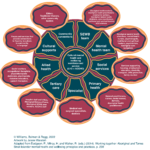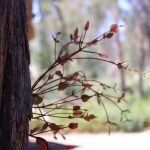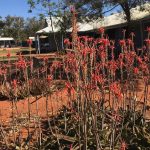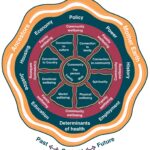
August 2024
In this Starburst, methods and findings from three collaborative research projects that Yulang team members were involved in are outlined.
Each research project found enablers and barriers to increasing Aboriginal and Torres Strait Islander workforces.
Findings are relevant to government and non-government organisations, professional education, cultural safety, cultural load and organisational change.
Organisations are increasingly recognising cultural load as a form of systemic racism that Aboriginal and Torres Strait Islander people experience. The University of Technology Sydney, for example, ensured its enterprise bargaining agreement requires cultural load of Aboriginal and Torres Strait Islander staff to be addressed and prevented.
Findings very much speak to the skill of critical self-reflection by individuals, which is often an industry-required professional capability and is named in requirements for cultural safety; cultural safety is now a legislated requirement of health professionals.
As the following reports show, lack of cultural safety is a reason organisations struggle to recruit and retain Aboriginal and Torres Strait Islander workforces.
Career Pathways Project
The Career Pathways Project (CPP), funded by the Lowitja Institute, was a collaboration between AMSANT, Bila Muuji, UNSW, Western Sydney University and Human Capital Alliance. Megan Williams was involved while at Western Sydney University and at UTS, and was also an adjunct to UNSW.
CPP investigated the capacity of the health system to retain and support the development and careers of Aboriginal and Torres Strait Islander people in the health workforce. It asked about the skills and values that Aboriginal and Torres Strait Islander health staff contribute to health services and explored the barriers and enablers of Aboriginal and Torres Strait Islander health staff entering and progressing careers.
CPP used mixed methods:
- literature review
- secondary data analysis
- national survey (N=378)
- national career trajectory interviews (N=70)
- case studies in New South Wales (NSW) and the Northern Territory (NT) (N=16; 239 people)
- interviews with key national stakeholders (N=35).
Experiences of employees and employers at all levels and across many occupations were sought, including administrative, clinical and management and executive roles. Data was collected among people working in Aboriginal Community Controlled Health Organisations and government health organisations, and from urban, regional, rural and remote areas.
Findings
Secondary data analysis completed for CPP shows that over the past 20 years there had been:
- growth in the absolute number of Aboriginal and Torres Strait Islander people in the health workforce
- growth in health-relevant higher education enrolments and graduations
- no improvement in the proportion of Aboriginal and Torres Strait Islander in the total health workforce due to growth in the non-Indigenous health workforce
- growth of Aboriginal and Torres Strait Islander people in lower status and lower paying health sector roles and poorer career development structures.
A third of 286 respondents to a survey question on career development opportunities rated their experience as very poor and poor, while 42% said good or very good.
Five priority recommendations were identified.
- Value and support Aboriginal and Torres Strait Islander leadership and self-determination strategies
- Mentor non-Indigenous staff about cultural safety
- Value cultural strengths of Aboriginal and Torres Strait Islander people including in models of care, health and healing
- Invest – fund – that Aboriginal and Torres Strait Islander workforce and workplace development to support the workforce
- Improve education and training including VET and tertiary articulation, performance of education institutions and connections with workplaces.
The full report, 4-page policy brief and list of all outputs is here https://www.lowitja.org.au/projects/career-pathways/
Aboriginal allied health workforce pathways scoping project
Girra Maa Indigenous Health Discipline at UTS was funded by NSW Health to undertake a scoping project to answer:
- What pathways, programs and initiatives are currently in place that attract and support Aboriginal people to enter and remain in allied health careers?
- Which programs are most successful and what factors contribute to their success?
- What are the enablers and inhibitors to career pathways and progression for Aboriginal people in allied health professions?
NSW Health required the scoping project to focus on:
- consideration of cultural appropriateness, safety and responsiveness of programs
- allied health professions with the lowest proportion of Aboriginal staff and/or of most importance for improving Aboriginal health outcomes, including dietetics & nutrition, podiatry, occupational therapy and social work
- metropolitan and rural/regional areas.
NSW Health identified stakeholders to engage with, including Aboriginal students and their supports, educators, Aboriginal allied health staff in government and community services, managers of Aboriginal health services, and Aboriginal workforce leaders.
Allied health disciplines recognised by NSW Health were included in the project scope: audiology, art therapy, child life therapy (formerly play therapy), counselling, dietetics and nutrition, diversional therapy, exercise physiology, genetic counselling, music therapy, nuclear medicine technology, occupational therapy, orthoptics, orthotics and prosthetics, pharmacy, physiotherapy, podiatry, psychology, radiation therapy, radiography, sexual assault, social work, speech pathology and welfare.
The project conducted three literature reviews, as well as 50 in-depth interviews and eight focus group discussions in urban, regional and rural locations across NSW, with ethics approvals.
A suite of reports was produced:
- Aboriginal allied health workforce pathways scoping project: Final report
- Aboriginal allied health workforce pathways scoping project literature review: Workforce and sector
- Aboriginal allied health workforce pathways scoping project literature review: Educational pathways
- Aboriginal allied health workforce pathways scoping project literature review: Policy and landscape
- Aboriginal allied health workforce pathways scoping project data: What people say
- Aboriginal allied health workforce pathways scoping project: Methodology and methods.
Findings
Four of 23 professions met the former 1.8% staff target and/or new 3% target, as did one “other” (not specified). The remaining 19 had few or no Aboriginal staff. Based on the use of five assessment criteria developed during this project, two-thirds of the professions do not include Aboriginal perspectives in education and training, on professional association websites or in strategic priorities; few appear ready to work with Aboriginal people and culture.
Table 1: Success factors for Aboriginal people to enter and remain in NSW Health allied health careers

The interviews and focus groups described enablers to enter allied health careers:
- allied health courses advertised and showing that they include Aboriginal perspectives
- flexibility in education and training entry requirements
- recognition of prior learning and work experience, with clear administration steps
- scholarships and financial support for training
- block-mode, online and blended learning course delivery, with tutoring
- location of courses, spread around NSW
- being in a group (‘cohort’) with other Aboriginal people for support
- academic support and tutoring
- clear steps that link levels of study, cadetships and employment
- Aboriginal perspectives being included in course content materials
- professions’ accreditation requirements for cultural competence being genuinely met
- visibility of NSW Health as a potential employer.
Enablers to remain in the workforce:
- recruitment processes for Aboriginal people used and promoted
- interprofessional work with other health services encouraged by supervisors
- professional development requests supported by supervisors
- access to good quality clinical and cultural supervision
- mentoring programs and peer support networks
- Aboriginal cultural contributions that are recognised including in job descriptions
- flexible work conditions that mean cultural responsibilities can be met
- job satisfaction, recognising people’s skills and strengths, with options for trying new roles.
Enablers in policies and the health sector, influencing how people experience their work:
- availability of allied health roles for Aboriginal people
- visible commitment to achieving Aboriginal health equity
- resources allocated for cultural responsiveness of institutions
- Aboriginal people in leadership and decision-making
- reliable data gathered and used to inform decision-making
- development plan and targets made specifically for Aboriginal allied health
- human resource management that understands and supports Aboriginal staff needs
- workforce legislation implemented including meeting targets
- national and state Aboriginal health frameworks implemented, evaluated and reported.
Inhibitors for Aboriginal allied health careers occur when enablers are missing. Others are:
- ‘cultural load’ when an Aboriginal staff member is asked or expected to represent other Aboriginal people, or explain Aboriginal perspectives and information, in addition to their job description
- isolation and burden experienced being alone or one of the few Aboriginal people in a workplace or training
- being stereotyped into ‘Aboriginal staff working mostly with Aboriginal clients’, and few opportunities for wider experience
- individual Aboriginal people being blamed for leaving jobs, when problems in organisations are not addressed
- allied health professionals, educators and supervisors not being experienced in supporting Aboriginal people or models of health care, limiting what Aboriginal staff are able to do
- unclear processes to address racism, stereotyping and negative experiences
- competition with private sector, and its perceived benefits
- low Allied Health Assistant trainee wages
- lack of career progression or mentoring models for Aboriginal professionals
- few Aboriginal people visible in allied health peak bodies, which have a role influencing the extent to which Aboriginal culture, models of care and strategies are respected and used.
Threats to cultural appropriateness, safety and responsiveness:
- other health staff speaking negatively about Aboriginal people, based on assumptions and stereotyping
- unclear processes for addressing hurtful experiences and racism, or preventing them
- minimal induction for all staff about Aboriginal people and culture and self-reflection
- health staff lacking confidence, skill and respect for engagement with Aboriginal people
- lack of cultural safety plans and training in services
- limited staff training about developing programs with Aboriginal people
- few program-based relationships with local Aboriginal people and services
- Aboriginal people not being included in decision-making
- lack of funding for culturally relevant program evaluation.
Focusing on allied health professions with no or small Aboriginal workforces risks Aboriginal staff being unsupported and isolated. Instead:
- for targeting, do statistical analysis to understand needs and resources across local health districts and speciality networks, and within Aboriginal populations e.g. young people compared to older people
- do analysis to understand allied health professions’ roles, savings and costs in prevention compared to treatment, and for increasing and decreasing rates of illness and death.
The NSW Aboriginal Health Plan 2013-2023 aims for “services tailored to meet the unique and local needs of Aboriginal communities” (NSW Ministry of Health, 2012, p. 9). Investing in the NSW Aboriginal Health Partnership Agreement 2015-2025 with the Aboriginal Health & Medical Research Council and its members will guide local engagement. To be as effective as possible in this, NSW Health staff completions of cultural awareness and community engagement training are essential.
The suite of reports are available by Freedom of Information application.
Gari Yala (speak the truth): Centring the experiences of Aboriginal and/or Torres Strait Islander Australians at work
Gari Yala was undertaken by UTS’s Jumbunna and led by Professor Nareen Young in partnership with the Diversity Council of Australia. Girra Maa’s Megan Williams was a member of the advisory committee.
For Gari Yala, a survey was completed by 1033 Aboriginal and Torres Strait Islander people across Australia about their experiences at work.
Findings
Key findings were about frequent experiences of racism, lack of cultural safety and identity strain. These were found to reduce job satisfaction among Aboriginal and Torres Strait Islander people; other research has connected low work satisfaction with low retention.
Figure 1: Importance of sharing your Aboriginal and Torres Strait Islander background at work

Gari Yala found that despite racism, exclusion and identity strain, an overwhelming majority of survey respondents believed that identifying as an Aboriginal and/or Torres Strait Islander person in the workplace was important.
Gari Yala also explored implications of identifying as Aboriginal and Torres Strait Islander at work.
Figure 2: Implications of identifying as Aboriginal and Torres Strait Islander

For a copy of the synopsis report, infographics and links to video, see https://www.dca.org.au/research/project/gari-yala-speak-truth-centreing-experiences-aboriginal-andor-torres-strait-islander
Recommended citation
Williams, M. & Ragg, M. (2024). How do we increase Aboriginal and Torres Strait Islander staff numbers? Insights from Aboriginal and Torres Strait Islander workforce research. Yulang Indigenous Evaluation. https://yulang.com.au/starburst-indigenous-evaluations/increase-staff-numbers/
References
Bailey, J., Blignault, I., Carriage, C., Demasi, K., Joseph, T., Kelleher, K., Lew Fatt, E., Meyer, L., Naden, P., Nathan, S., Newman, J., Renata, P., Ridoutt, L., Stanford, D. & Williams, M. (2020). “We are working for our people”: Growing and strengthening the Aboriginal and Torres Strait Islander health workforce, Career Pathways Project Report, Lowitja Institute, Melbourne.
Diversity Council Australia/Jumbunna Institute (Brown, C., D’Almada-Remedios, R., Gilbert, J. O’Leary, J. and Young, N.) Gari Yala (Speak the Truth): Centreing the work Experiences of Aboriginal and/or Torres Strait Islander Australians, Sydney, Diversity Council Australia/Jumbunna Institute, 2020.
Williams, M., Ragg., M & Manton, D. (2019). Aboriginal allied health workforce pathways scoping project literature review: Educational pathways. (Commercial-in-confidence). NSW Ministry of Health.
Williams, M., Ragg., M & Manton, D. (2019). Aboriginal allied health workforce pathways scoping project: Final report. (Commercial-in-confidence). NSW Ministry of Health.
Williams, M., Ragg., M & Manton, D. (2019). Aboriginal allied health workforce pathways scoping project literature review: Methodology and methods. (Commercial-in-confidence). NSW Ministry of Health.
Williams, M., Ragg., M & Manton, D. (2019). Aboriginal allied health workforce pathways scoping project literature review: Policy and landscape. (Commercial-in-confidence). NSW Ministry of Health.
Williams, M., Ragg., M & Manton, D. (2019). Aboriginal allied health workforce pathways scoping project: What people say. (Commercial-in-confidence). NSW Ministry of Health.
Williams, M., Ragg., M & Manton, D. (2019). Aboriginal allied health workforce pathways scoping project literature review: Workforce and sector. (Commercial-in-confidence). NSW Ministry of Health.







